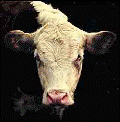Animal Science, Department of

Department of Animal Science: Dissertations, Theses, and Student Research
First Advisor
Daniel Ciobanu
Date of this Version
5-2018
Document Type
Thesis
Citation
Walker, L.R. (2018). Dissection of QTL on Host Chromosome 12 Uncovers Candidate Gene and Missense Polymorphism Associated with Porcine Circovirus 2 Susceptibility. (Master's thesis). University of Nebraska, Lincoln, NE.
Abstract
Porcine circovirus 2 (PCV2) is a small single stranded DNA virus responsible for a group of detrimental diseases referred to as Porcine Circovirus Associated Diseases (PCVAD). Observed variation in incidence and severity of PCVAD between pigs suggests a host genetic role in facilitating PCV2 pathogenesis. This study builds on prior research by Engle et al. (2014), who performed a large-scale genome-wide association study of 974 crossbred pigs experimentally infected with a PCV2b isolate and provided evidence of a host genetic role in PCV2 viremia, immune response, and growth. Two major Quantitative Trait Loci (QTL) were identified for viral load located on chromosome 7 (SSC7) near the swine leukocyte antigen complex class II (SLAII) locus and the proximal end of chromosome 12 (SSC12). The SNP with largest association, ALGA0110477 (SSC12), explained 11.1% of the genetic variance and 7.4% of the phenotypic variance for viral load.
Dissection of the SSC12 QTL region using gene annotation and both genomic and RNA sequencing uncovered a novel missense polymorphism within SYNGR2 (p.Arg63Cys) that exhibited the largest association with PCV2 viremia and immune response. In vitro gene silencing of SYNGR2 was performed on porcine kidney 15 cell line (PK15) using siRNA designed against the SYNGR2 mRNA sequence. A substantial decrease in SYNGR2 mRNA expression (82.2%) was achieved and corresponded with a significant reduction in PCV2 titer beginning at 48 hours post infection (P<0.05) compared to scramble siRNA and non-transfected control cells, indicating a role of SYNGR2 in viral replication. The SYNGR2 p.Arg63Cys mutation is located within a protein domain conserved across mammals and results in an amino acid substitution (Arga→Cys) unique to swine. The impact of SYNGR2 on PCV2 replication and location of a non-conservative substitution within a key domain provides strong evidence that the SYNGR2 p.63Cys variant underlies the observed genetic effect on viral load by potentially interfering with SYNGR2 activity. These findings provide important insight into the role of host genetics in PCV2 pathogenesis.
Advisor: Daniel Ciobanu


Comments
Copyright (c) 2018 Lianna Rayne Walker.
Formerly embargoed, this thesis is now (12/17/18) available to the public.